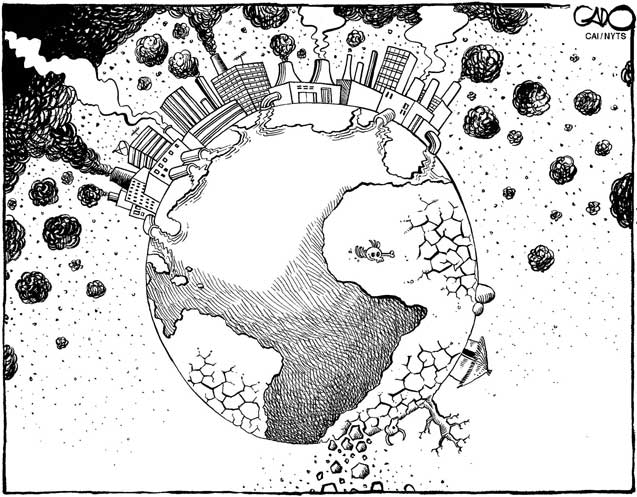
Daron Acemoglu and James Robinson, the authors of the book “Why Nations Fail,” recently reacted on their blog to the economist Allan Meltzer’s claim that the top 1 percent is surging everywhere, even in Sweden, so it’s not a proper political issue.
“There are significant cross-country differences in the trends in inequality, and it is far from obvious that all of these changes are explained by global trends,” they wrote in response to commentary by Mr. Meltzer published in The Wall Street Journal on March 9. “There is therefore a prima facie case that other factors — and yes, domestic and political ones — have also played a major role in increase in top inequality in the U.S.”
As Mr. Acemoglu and Mr. Robinson say, there’s other strange stuff in Meltzer: how does a rising premium for education explain soaring shares for a tiny segment of the highly educated? The premise about a global shock doesn’t stand up to evidence — not even the evidence Mr. Meltzer presents.
And you have no business talking about international income distribution if you don’t know about the invaluable World Top Incomes Database. What does this database tell us about Sweden versus America?
Hey, it looks just the same — or, actually, not. Yes, the chart on this page shows the top 1 percent has risen a bit in Sweden. But how anyone could look at this and see the story as similar boggles the mind.
Europe’s Two Depressions
Barry Eichengreen and Kevin O’Rourke recently published on the Center for Economic Policy Research’s Web site a follow-up to their hugely influential article, “A Tale of Two Depressions,” on quantitative comparisons of the Great Depression and the Great Recession. They point out that the slump wasn’t nearly as bad this time, and recovery began much sooner — but that the pace of recovery has clearly slowed. I was curious, however, about Europe. One of their key points in the original article was that we understate the similarity of the two slumps when we focus on America, which had a very deep decline post-1929 but a smaller decline this time. Elsewhere, the contrast was less marked. And in their update, a good part of the recovery reflects growth in emerging markets, not advanced nations.
So how does Europe look? I’ve been corresponding with Barry and Kevin, and while we haven’t done the full comparison, they pointed me to some suggestive numbers. Charles Feinstein, Peter Temin and Gianni Toniolo have data on interwar industrial production in their book “The World Economy Between the World Wars.” Meanwhile, Eurostat has compiled the numbers this time around.
So Europe had a 28 percent decline in industrial production peak to trough in 1929 and in the years following, versus around 18 percent this time. By year five of the original Depression, output had recovered to 86 percent of its previous peak; right now, production is 91 percent of previous peak, and falling as Europe slides back into recession.
So Europe is doing better this time, but not that much better — it’s sort of two-thirds of a Great Depression. Clearly, the answer is more austerity.
Join us in defending the truth before it’s too late
The future of independent journalism is uncertain, and the consequences of losing it are too grave to ignore. To ensure Truthout remains safe, strong, and free, we need to raise $43,000 in the next 6 days. Every dollar raised goes directly toward the costs of producing news you can trust.
Please give what you can — because by supporting us with a tax-deductible donation, you’re not just preserving a source of news, you’re helping to safeguard what’s left of our democracy.